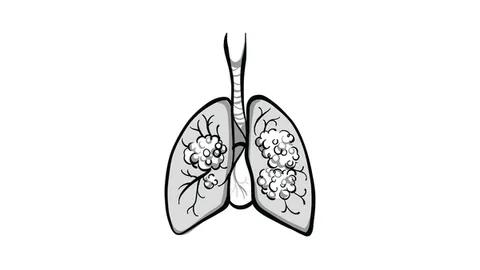The Targeted Pulse: NK-Cell Therapies, T-DXd and Adagrasib in Solid Tumors, and More
Emerging NK-cell therapies offer faster, safer alternatives to CAR T-cell therapy, improving accessibility and reducing manufacturing challenges. T-DXd shows promise in treating HER2+ tumors, and HPV vaccine offerings during abortion care visits improve vaccination rates.
Natural Killer–Cell Therapies Offer a Promising Approach to Immunotherapy
In an interview with Katy Rezvani, MD, PhD, Rezvani addresses the interest in natural killer (NK)-cell therapies that provide a “faster, cheaper, [and] safer” alternative to chimeric antigen receptor (CAR) T-cell therapy. Rezvani is a professor of medicine in the Department of Stem Cell Transplantation at The University of Texas MD Anderson Cancer Center in Houston.
Although CAR T-cell therapy induces significant survival improvement, its efficacy limitations, manufacturing challenges, financial toxicity, and safety risks pose great challenges. NK–cell therapy, though not yet FDA approved, do not require full HLA matching. This reduces the risk of graft-vs-host disease as well as the lengthy manufacturing times seen with CAR T-cell therapy.

T-DXd Demonstrates Positive Results in HER2+ Advanced Solid Tumors
Fam-trastuzumab deruxtecan-nxki (T-DXd) has been used to treat certain cancers and is now showing positive improvement in patients with advanced solid tumors that harbor a HER2 amplification. Data from the DESTINY-PanTumor02 (NCT04482309) trial and the HERALD/EPOC1806 study (UMIN000029315) show promising results across several tumor types, including endometrial, cervical, ovarian, bladder, biliary tract, pancreatic, and more.
“This is the first pan-tumor antibody-drug conjugate trial to show tumor agnostic activity, so that was notable. We were excited to see each activity across tumor types, but also notable is the durability,” Funda Meric-Bernstam, MD, regarding DESTINY-PanTumor02 said. Meric-Bernstam is chair of the Department of Investigational Cancer Therapeutics at The University of Texas MD Anderson Cancer Center in Houston.

Improving Cervical Cancer Prevention With Timely HPV Vaccine Offerings
Study researchers from NYU Langone showed that offering human papillomavirus (HPV) vaccines during abortion care visits increases vaccination rates among women of reproductive age and lowers cervical cancer risk. “…Vaccination rates in the United States are still quite low. Unfortunately, both HPV and cervical cancer are disproportionately affecting women who belong to groups that have been marginalized,” Catherine Herrman, MD, stated. “To improve that vaccine uptake and help resolve these disparities, we felt like a creative solution was needed, which was why we thought of abortion care.” Herrman is a second-year fellow at NYU Langone.
Study investigators trained the abortion clinic staff on HPV and the vaccine and created a new system for speaking with patients about receiving the vaccine.
Assessing the Progress and Next Steps in the Moonshot Initiative
With the relaunched Cancer Moonshot initiative in 2022, Manmeet Ahluwalia, MD, MBA, FASCO, discussed the design of the program, the progress made, and future steps. “We’ve made initial successes in immunotherapy, and there is focus now on immunotherapy, but [there are] also translational aspects to it. Because we do know that 30% to 50% of patients with lung cancer, head and neck cancer, melanoma, and a number of other cancers get durable [responses] and great benefit from immunotherapy, there’s still a proportion of patients who do not,” Ahluwalia stated. “Now [the] emphasis is, how do we build on this?”
Ahluwalia is chief scientific officer, chief of medical oncology, deputy director, and Fernandez Family endowed chair in cancer research at the Baptist Health Miami Cancer Institute.

Adagrasib Shows PFS and OS Improvement in KRAS G12C NSCLC
Data from the phase 3 KRYSTAL-12 study (NCT04685135) show that adagrasib (Krazati) improves progression-free survival and overall survival for patients with pretreated locally advanced or metastatic KRAS G12C-mutated non–small cell lung cancer, meeting its primary and secondary end points. The study is ongoing and will continue to evaluate overall survival.
“Today’s news is an important reinforcement of the power of a targeted therapy for patients with locally advanced or metastatic KRAS G12C-mutated lung cancer. [The] FDA approval of [adagrasib] in the US has allowed us to provide a new treatment option for these patients, and topline results of the KRYSTAL-12 confirmatory study will build greater trust in the medical and patient community,” Abderrahim Oukessou, MD, said. Oukessou is vice president and thoracic cancers development lead at Bristol Myers Squibb.
Thank you for joining us for this week’s Targeted Pulse. Look out for more recaps to come.